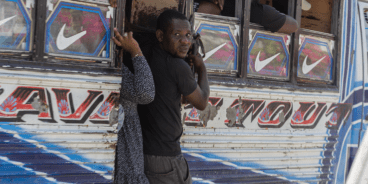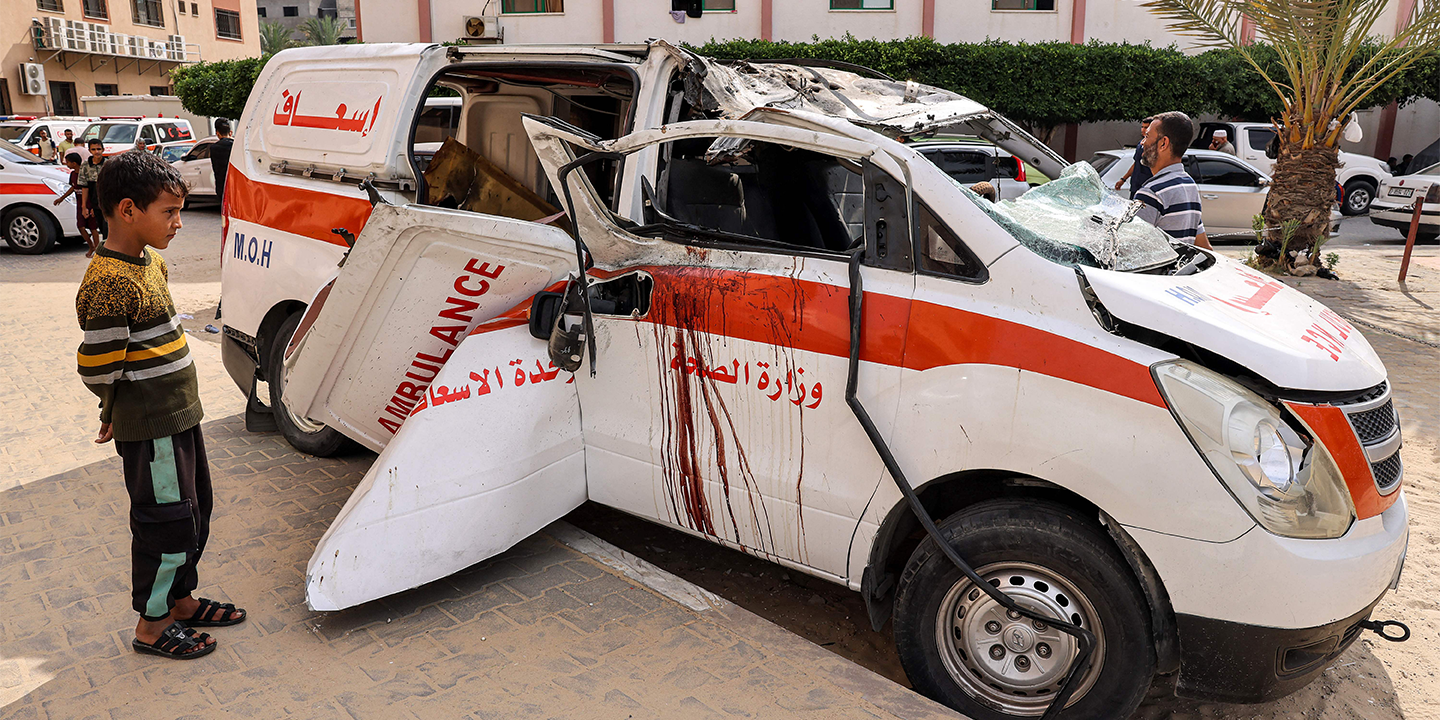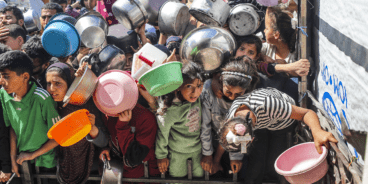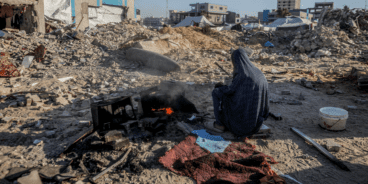

Atrocity Alert No. 384: Israel and the Occupied Palestinian Territory, Sudan and Myanmar (Burma)
Atrocity Alert is a weekly publication by the Global Centre for the Responsibility to Protect highlighting situations where populations are at risk of, or are enduring, mass atrocity crimes.
ISRAEL LIKELY VIOLATING ICJ PROVISIONAL MEASURES ORDER
On 15 February Israeli forces raided Nasser Hospital in southern Gaza following a week-long siege on the hospital that cut off medical, food and fuel supplies. During the raid Israeli forces reportedly ordered the evacuation of all patients, including those in intensive care and nursery units, and those attempting to flee the hospital were reportedly detained and targeted. The Office of the UN High Commissioner for Human Rights has documented similar raids on medical facilities across Gaza and said they appear to be part of a broader pattern by Israeli forces of attacks targeting life-saving civilian objects.
In a rare briefing to the UN Security Council (UNSC) on 22 February, Secretary General of Médecins Sans Frontières Christopher Lockyear said, “Israeli forces have attacked our convoys, detained our staff, and bulldozed our vehicles… This pattern of attacks is either intentional or indicative of reckless incompetence. This death, destruction, and forced displacement are the result of military and political choices that blatantly disregard civilian lives.” Medical facilities are protected under International Humanitarian Law. Should a medical facility lose its protection due to Hamas activity – as Israel has alleged – the principles of precautions and proportionality must still be respected. As the occupying power, Israel also has a duty to ensure access to medical services.
Israel is likely not complying with the 26 January International Court of Justice (ICJ) provisional measures order, which, among other measures, called on Israel to take “immediate and effective measures to enable the provision of urgently needed basic services and humanitarian assistance” in Gaza. Israel has continued to obstruct the entry and provision of life-saving aid, which likely amounts to the war crime of intentional starvation of civilians as a weapon of war. The Israeli government has also engaged in a campaign to dismantle the UN Relief and Works Agency for Palestine Refugees in the Near East (UNRWA). Sixteen donor states have frozen UNRWA funding, pushing the seminal agency to the brink of collapse.
The ICJ noted on 16 February that recent developments, particularly Israel’s escalating airstrikes and planned ground operations in Rafah, would exponentially worsen the crisis in Gaza and emphasized the urgent need for effective implementation of the provisional measures.
Executive Director of the Global Centre for the Responsibility to Protect Savita Pawnday said, “The international legal principles on which our collective humanity is based have been blatantly and systematically violated, ignored and eroded as the world watches with horror.” A ceasefire in Gaza must be immediately reached; the UNSC should fulfill its mandate and call for one without delay. Funding to UNRWA should be restored to preserve the agency’s critical mandate. All states must cease arms exports to Israel to ensure they are not aiding and abetting atrocities in Gaza. States parties to the Genocide Convention should ensure Israel’s compliance with the provisional measures.
SAF BLOCKING HUMANITARIAN AID TO RSF-CONTROLLED AREAS IN DARFUR, SUDAN
The Sudanese Armed Forces (SAF) have recently been prohibiting and obstructing life-saving cross-border humanitarian aid and assistance from reaching vulnerable communities in areas controlled by the Rapid Support Forces (RSF), according to the Sudan Country Director of the World Food Programme, Eddie Rowe. Those most affected by the denial of aid are civilians in the Darfur region, where the RSF controls four of the five states. On 5 February Médecins Sans Frontières estimated that one child is dying every two hours as result of malnutrition in Zamzam camp, one of the largest displacement camps in North Darfur. The denial of humanitarian assistance to civilians trapped or displaced by conflict is increasingly being used as a tactic of war, which may constitute a war crime.
In the ten months since the violence between the SAF and RSF erupted, populations in Darfur have experienced large-scale attacks by the RSF as part of a systematic campaign aimed at preserving and expanding their control, while also allegedly ethnically cleansing the area of non-Arab communities. More than 29 cities, towns and villages have been fully or partially destroyed and mass graves have been identified in El Geneina and Misterei. Fighting remains ongoing in North Darfur. The UN Security Council-mandated Panel of Experts estimates that between 10,000 and 15,000 civilians were killed by the RSF and allied militia in El Geneina from April to June. These atrocity crimes are driving mass displacement and compounding humanitarian needs. On 26 February Stéphane Dujarric, Spokesperson for the UN Secretary-General, stressed, “The cross-border aid operation from Chad is a lifeline for people in Sudan’s Darfur region… If cross-border deliveries cannot continue, the humanitarian crisis in Darfur will only worsen.”
As result of the ongoing conflict, populations across the country are experiencing extreme shortages of food, water, medication and fuel. Nearly 18 million people are facing acute food insecurity. In early February Rowe warned that “life-saving assistance is not reaching those who need it the most, and we are already receiving reports of people dying of starvation.”
The SAF, RSF and allied militia must urgently provide the necessary security guarantees and approvals to ensure rapid and unimpeded passage of humanitarian relief, as well as safe and unimpeded access for humanitarian organizations to all areas under their control. While the international community struggles to effectively provide assistance amid access constraints, it is critical that it builds partnerships with so-called “Emergency Rooms.” These community-based mutual aid groups consisting of local resistance committees and youth volunteers are playing a leading role in the humanitarian response and must receive the necessary support. The international community should continue its efforts toward reaching a permanent cessation of hostilities, as well as urgently provide the needed funding to the Humanitarian Needs and Response Plan.
MYANMAR JUNTA TO ENFORCE MILITARY CONSCRIPTION PLAN AMIDST ESCALATING FIGHTING
On 10 February Myanmar’s (Burma’s) military junta announced its intentions to enforce the country’s 2010 conscription law. Starting in April, the junta plans to conscript at least 5,000 people per month, including men aged 18 to 35 and women aged 18 to 27 for a period of two years. A longer term of service, as well as higher age limit of 45 for men and 35 for women applies to certain professional categories. According to the junta, around 26 percent of the population – at least 14 million people – are eligible for military service under the law. Evading conscription, or helping others do so, is punishable by three to five years in prison and a fine.
The announcement was met with widespread rejection, with thousands of people attempting to flee despite increasing restrictions imposed by the junta on travel visas and flights. The UN Special Rapporteur on the situation of human rights in Myanmar, Tom Andrews, said, “By seeking to activate the conscription law, the junta is trying to justify and expand its pattern of forced recruitment, which is already impacting civilian populations around the country. In recent months, young men have reportedly been kidnapped from the streets of Myanmar’s cities or otherwise compelled into joining the military’s ranks. Villagers have reportedly been used as porters and human shields.”
The conscription announcement comes after months of escalating conflict between the junta and ethnic resistance organizations (EROs). In October a coalition of EROs launched Operation 1027, which galvanized other groups to launch similar offensives across the country in the most serious setback for the junta since the coup. Fighting has engulfed at least two thirds of the country, displaced over 800,000 people and killed more than 554. As the junta faces challenges in quelling armed resistance, it has increased attacks on civilians and civilian infrastructure. Some EROs have also been accused of abuses, including forced conscription of civilians and the use of child soldiers in areas under their control. Targeted attacks on civilians and civilian infrastructure are violations of international law and may amount to war crimes and crimes against humanity.
The Global Centre for the Responsibility to Protect’s Myanmar expert, Sarah Hunter, said, “The international community must support the aspirations of populations in Myanmar who are now at risk of being forced to commit atrocities against their will. Sanctions regimes must be consolidated to more effectively cut off the funds, fuel and weapons used to commit daily atrocities in Myanmar.”
Related Content


Unified Call to Confront Famine in Gaza: Launch the Diplomatic Humanitarian Convoy Now
